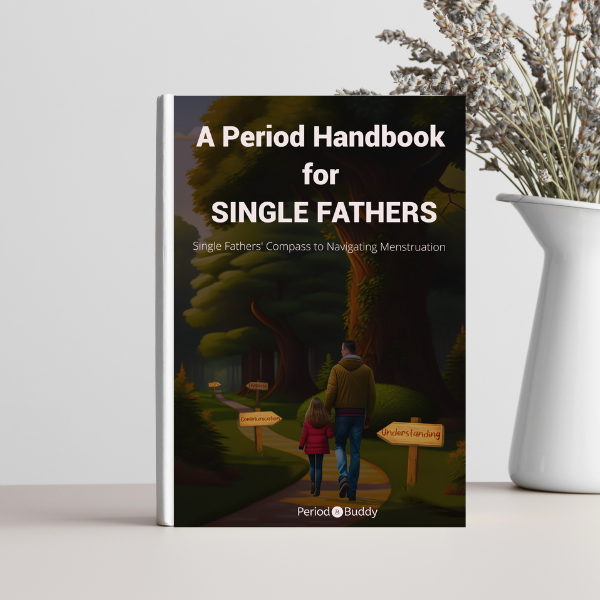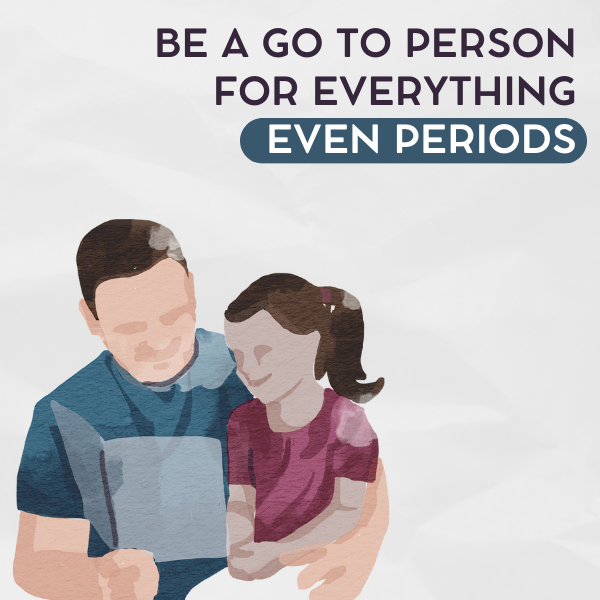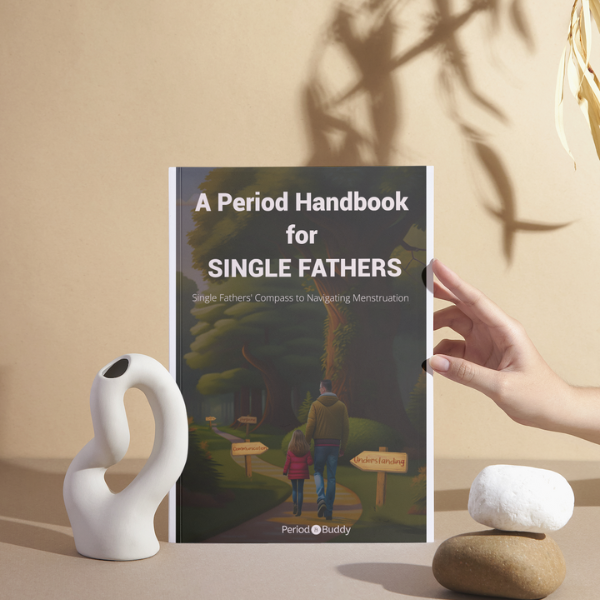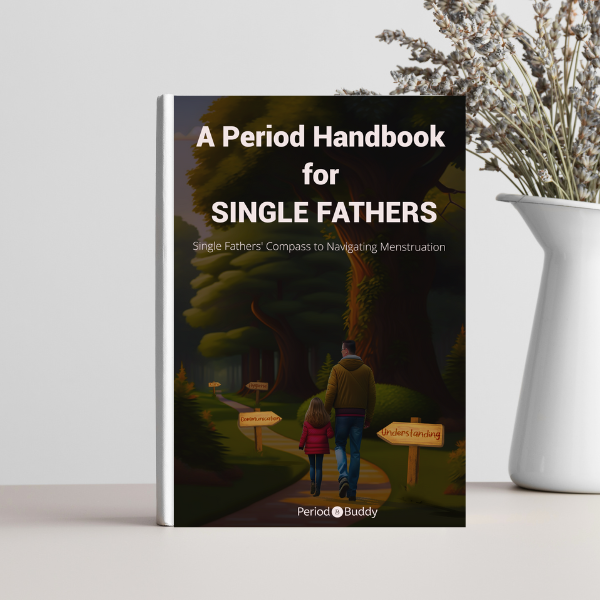Period Guide For Father
Period Guide For Father
Couldn't load pickup availability
- 2-7 Days


Wish to be a part of your daughter's menstrual journey BUT
Lack of menstrual knowledge
Not able to comprehend how to handle emotional aspects of the your little one’s mood swings
Fear of social pressure to conform to traditional gender role etc..
holding you

Providing you with the knowledge you need to support your daughter during her period and beyond
-
01 Puberty
Puberty is a significant and transformative phase in a child’s life, and understanding its various aspects is essential for fathers to provide support, guidance, and a nurturing environment.
-
02 Periods And Menstrual Cycle
In this chapter of the Father’s Period Guide, we will explore the essential aspects of menstruation, the menstrual cycle, and how fathers can recognize the signs that their daughter’s first period is approaching
-
03 Teach Her
In this chapter, we will discuss the important role fathers play in guiding their daughters through the stages of puberty. We’ll delve into what topics should be taught, when to introduce them, and effective strategies for facilitating these crucial conversation
-
04 Open Communication
Focus on nurturing open and honest communication between fathers and daughters regarding the topic of menstruation. We’ll delve into the importance of creating a safe and judgment-free environment where your daughter feels comfortable discussing her thoughts and questions about periods
-
05 First Period Preparation
This chapter explore the practical preparations fathers can make to help their daughters prepare for their first period. We’ll also discuss what both fathers and daughters can expect on the day of her first period, and how to go beyond mere acknowledgment to celebrate this important milestone in her life
-
06 Post Period Care
This chapter talks about essential aspects of post-first period care and how fathers can support their daughters in maintaining good menstrual hygiene, tracking periods, addressing potential issues like stain management, iron recovery and promoting a healthy lifestyle
-
07 Beyond
This chapter explore the crucial topics of societal stigmas and myths surrounding menstruation. We will also discuss the importance of educating male siblings about menstruation, fostering understanding, empathy, and a supportive family environment where menstruation is destigmatized and normalized
-
08 Period-Related Conditions
Delve into a comprehensive understanding of menstrual-related diseases and conditions, and most importantly, how to prevent them. We’ll provide insights into the causes, symptoms, and steps to take to reduce the risk of these conditions, empowering your daughter with knowledge about her menstrual health
-
09 Bonus
In this, we have covered some other useful information which might not be useful in the start but later would useful. We have also delved into more comprehensive explanations of certain topics that were briefly introduced earlier.
Rapid Fire Round
Can I Order The Books Prior To My Daughter Hitting Her First Period?
Yes. Before her first period cycle begins, she needs to understand about periods.
which means you need to explain her about periods before she gets one.
When is the right time to talk to her about periods?
The right time to talk to your daughter about periods is before she experiences it for the first time. Girls typically start menstruating between the ages of 8 and 15, so it’s best to start the conversation when she’s around 8-10 years old.
Other than this, you can also use these ways to decide.
1. If her any of friends or classmate got periods
2. If there are signs of puberty
My Daughter is scared to talk about periods, what to do?
It’s common for young girls to feel uncomfortable or embarrassed about discussing periods, especially if they haven’t had many conversations about it before. Here are some tips to help your daughter feel more comfortable talking about periods:
1. Share your own experiences:
Share your own experiences with periods.
2. Provide resources: Give your daughter books or articles about periods to read.
3. Create a safe space: Let your daughter know that she can come to you with any questions or concerns she has about periods



